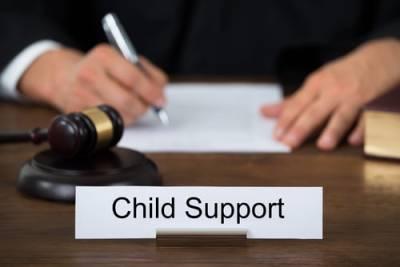Recent Blog Posts
Can Limited Scope Representation Help Me in My Illinois Divorce?
 Although some people getting divorced in Illinois want to hire an attorney who will represent them from the moment the divorce begins to the moment the final divorce decree is handed down, this is neither financially nor practically feasible for everyone. If you anticipate a simple divorce, have budgetary restraints, or simply have the desire to handle certain issues yourself, you may have another option: Limited scope representation.
Although some people getting divorced in Illinois want to hire an attorney who will represent them from the moment the divorce begins to the moment the final divorce decree is handed down, this is neither financially nor practically feasible for everyone. If you anticipate a simple divorce, have budgetary restraints, or simply have the desire to handle certain issues yourself, you may have another option: Limited scope representation.
Illinois allows attorneys to limit the scope of their representation to clients if there are reasonable circumstances and the client understands and gives their consent. Attorneys can coach divorcees who wish to represent themselves, prepare evidence, and can even appear in court if necessary - but only if the client seeks that representation as part of their legal services. If you are considering getting divorced in Illinois and doubt that full-scale legal representation is right for you, read on.
How Does Child Support Work for a Disabled Child over 18?
 Child support payments are a crucial part of ensuring children are raised in a way that meets their physical and emotional needs following a divorce. Generally, child support ends once a child turns 18 or graduates high school or college. For some adults, mental and physical disabilities make it impossible for them to live independent lives. In cases like this, child support payments may be extended so the child can maintain a reasonable standard of living, even as an adult.
Child support payments are a crucial part of ensuring children are raised in a way that meets their physical and emotional needs following a divorce. Generally, child support ends once a child turns 18 or graduates high school or college. For some adults, mental and physical disabilities make it impossible for them to live independent lives. In cases like this, child support payments may be extended so the child can maintain a reasonable standard of living, even as an adult.
If you are parenting a disabled child and want to know more about what this might mean for child support payments, this blog may be helpful to you. Keep in mind that every situation is unique and that a qualified Illinois child support attorney is the best person to give you advice tailored to your situation.
Determining Child Support for Disabled Adult Dependants
In Illinois, child support payments are based on both parents’ incomes and the amount of time each parent spends with their child. This allows parents to split the cost of raising a child in a way that is fair to everyone. Illinois has standard tables it uses to calculate child support payments, but judges have leeway to modify payments if they would be unfair or insufficient.
How Can Unpaid Child Support be Recovered in Illinois?
 Child support payments are legally binding obligations. Once a divorce order has been finalized, parents cannot simply choose not to pay child support because they feel it is unfair or they cannot afford it, nor can former spouses renegotiate child support payments themselves without the assistance of the court.
Child support payments are legally binding obligations. Once a divorce order has been finalized, parents cannot simply choose not to pay child support because they feel it is unfair or they cannot afford it, nor can former spouses renegotiate child support payments themselves without the assistance of the court.
If a parent fails to make child support payments, in addition to jeopardizing their children’s well-being, they face serious legal consequences. For the parent who should be receiving child support, the lack of resources coupled with the frustration of recovering payments can present a very difficult challenge. Having the help of a qualified attorney can make the process easier and take some of the burden off of your shoulders.
Consequences of Failing to Pay Child Support
Illinois has many strategies to bring non-compliant parents current on their child support payments. If a parent does not pay child support, the other parent can notify the Illinois Division of Child Support Services (DCSS), which then begins monitoring the parent who is responsible for paying child support. Additionally, the Illinois Non-Support Punishment Act provides criminal charges for parents who fail to pay, especially if they do so repeatedly.
When Can an Order for Child Support be Modified?
 Child support is a notoriously difficult area of family law, both because of its emotional impact on the parents who give and receive it, and because of the complexity of the rules involved in determining and modifying the amount.
Child support is a notoriously difficult area of family law, both because of its emotional impact on the parents who give and receive it, and because of the complexity of the rules involved in determining and modifying the amount.
Parents who are ordered to pay child support may feel angry or panicked if they worry they will not be able to make payments and maintain their own quality of life, but once a child support order has been handed down, it is difficult to modify - even if the paying parent feels the order is deeply unfair. If you have been ordered to pay child support and you fear you cannot meet your obligations long-term, do not stop making your payments and consult a qualified Illinois child support attorney.
When is it Possible to Modify an Illinois Child Support Order?
During a couple’s divorce proceedings, judges will often order temporary child support. This can be modified at any time before the divorce decree is finalized. Once a divorce decree is finalized, the child support order can be modified at any time before the child support obligation terminates. There is no mandatory waiting period. That being said, Illinois law requires a “substantial change in circumstances” to have occurred before judges will approve an increase or decrease in child support.
How is Child Support Calculated in Illinois?
 Parents going through a divorce in Illinois may experience some understandable anxiety when faced with the prospect of making or receiving child support payments. The paying parent may worry whether they will be able to afford their payments and sustain their current standard of living. The receiving parent may worry that payments will not get made and that their children will suffer as a result.
Parents going through a divorce in Illinois may experience some understandable anxiety when faced with the prospect of making or receiving child support payments. The paying parent may worry whether they will be able to afford their payments and sustain their current standard of living. The receiving parent may worry that payments will not get made and that their children will suffer as a result.
Illinois courts and judges take many factors into account when establishing a parent’s child support obligations. Understanding how these decisions are made is an important part of planning for your financial future. In this blog, we will explain the methods generally used to determine child support payments. It is important to remember that the exact calculation can be a lengthy and complex process, and the best person to answer your questions is an experienced Illinois family law attorney.
What Factors Does a Court Consider Regarding Child Support?
What is the Financial Impact of Remarriage on a Divorce Agreement?
 Although most spouses could comfortably walk away from their partner after a divorce and never speak to them again, reality does not work that way. Even after a couple gets divorced, several things can keep them connected long into the future. This is especially true if children are involved. Child support, spousal maintenance, and arranging shared parenting schedules often compel former spouses to work together for many years after the marriage has ended.
Although most spouses could comfortably walk away from their partner after a divorce and never speak to them again, reality does not work that way. Even after a couple gets divorced, several things can keep them connected long into the future. This is especially true if children are involved. Child support, spousal maintenance, and arranging shared parenting schedules often compel former spouses to work together for many years after the marriage has ended.
This means that the decisions of each partner often affect the other, and few decisions have as much of an impact as the remarriage of a former spouse. Former spouses who wish to get remarried often wonder how their finances will change, and whether they will need to support two families and two spouses. This article will discuss the two most common issues a remarriage can impact - child support and spousal maintenance.
What Can We Do if We Want a Prenup and Are Already Married?
 In the rush and excitement of planning for a wedding, many couples overlook the importance of a prenuptial agreement. But after the wedding is over and they settle into real life as a married couple, they may want to create a shared arrangement regarding their finances.
In the rush and excitement of planning for a wedding, many couples overlook the importance of a prenuptial agreement. But after the wedding is over and they settle into real life as a married couple, they may want to create a shared arrangement regarding their finances.
In many ways, postnuptial agreements are similar to prenuptial agreements. They can address how a couple will deal with day-to-day finances, work together towards retirement, and how they will allocate separate and marital property in the event of a divorce. Although prenuptial and postnuptial agreements may not seem romantic, they are actually a great way loving spouses can protect each other - whether they stay together or separate.
Who Can Benefit From a Postnuptial Agreement?
One common misconception about marital agreements is that they are only beneficial to older spouses, those who already have substantial financial resources, or those who share children from previous marriages. Although it is true that a prenup or postnup can be valuable to people in those circumstances, a postnuptial agreement can be equally valuable to a young couple just beginning their journey together in life.
Can I Record Conversations with My Spouse During Divorce in Illinois?
 Modern technology has made it very easy to record every moment of our lives. Photo, video, and voice recordings of people acting poorly are all over the internet. Although people getting divorced in Illinois may believe that recording their spouses doing something threatening or illegal would be justified and therefore no big deal, Illinois and federal law are quite strict regarding legal and illegal recordings.
Modern technology has made it very easy to record every moment of our lives. Photo, video, and voice recordings of people acting poorly are all over the internet. Although people getting divorced in Illinois may believe that recording their spouses doing something threatening or illegal would be justified and therefore no big deal, Illinois and federal law are quite strict regarding legal and illegal recordings.
Many people have legitimate reasons to fear their spouse during an ongoing divorce process and may want to surreptitiously document threats or abusive behavior. Although there are times when secret recording can be done legally, it is easy to violate these laws and a recording could be inadmissible as evidence - or worse, get the person doing the recording in serious legal trouble.
When Can Conversations Be Legally Recorded in Illinois?
Illinois is an all-party consent state when it comes to recordings. This means that everyone involved in a conversation must be aware that recording is taking place. They do not have to consent to the recording; they must only be aware of it.
How is Spousal Maintenance Handled in Illinois?
 Getting a divorce can have a major, ongoing impact on your finances. After the divorce is over and all the court and attorney expenses have been paid, many divorcees must continue to make spousal maintenance payments to their former spouses.
Getting a divorce can have a major, ongoing impact on your finances. After the divorce is over and all the court and attorney expenses have been paid, many divorcees must continue to make spousal maintenance payments to their former spouses.
Knowing how spousal maintenance is handled and what kinds of maintenance there are in Illinois is crucial for managing your options and expectations. In this article, we will explore what the Illinois Marriage and Dissolution of Marriage Act allows in terms of spousal maintenance, how payments are calculated, and how long you can expect to make these payments.
How is Spousal Maintenance Calculated?
Maintenance payments are allocated based on a fairly simple equation but judges have wide leeway to adjust payments depending on other factors as well, such as child support obligations or spousal support payments already being made to previous spouses. The basic formula for spousal maintenance is 33 percent of the paying spouse’s annual net income, minus 25 percent of the receiving spouse’s annual net income.
When Can a Custody Evaluator Be Helpful in an Illinois Divorce?
 Deciding how to arrange a parenting time schedule is never easy, but it can be particularly difficult when both parents are extremely hostile toward each other or when a parent is poorly equipped to care for their child. Sometimes, the court cannot determine the most appropriate arrangement without the assistance of other professionals, such as guardian ad litem or custody evaluators.
Deciding how to arrange a parenting time schedule is never easy, but it can be particularly difficult when both parents are extremely hostile toward each other or when a parent is poorly equipped to care for their child. Sometimes, the court cannot determine the most appropriate arrangement without the assistance of other professionals, such as guardian ad litem or custody evaluators.
What Does a Custody Evaluator Do?
A custody evaluator is a trained professional who is usually a psychologist, psychiatrist, or attorney. Custody evaluators are different from child representatives because they do not legally represent the child or anyone else. A custody evaluator’s job is to work with the judge, the parents, the child, and any other relevant parties to objectively assess what would be in the best interests of the child.

















